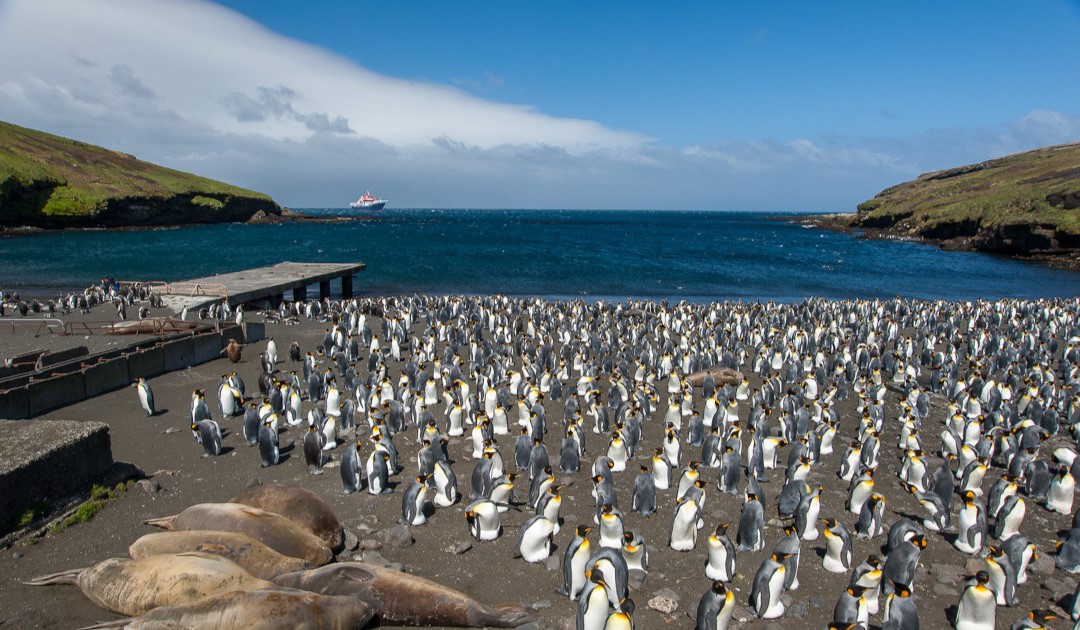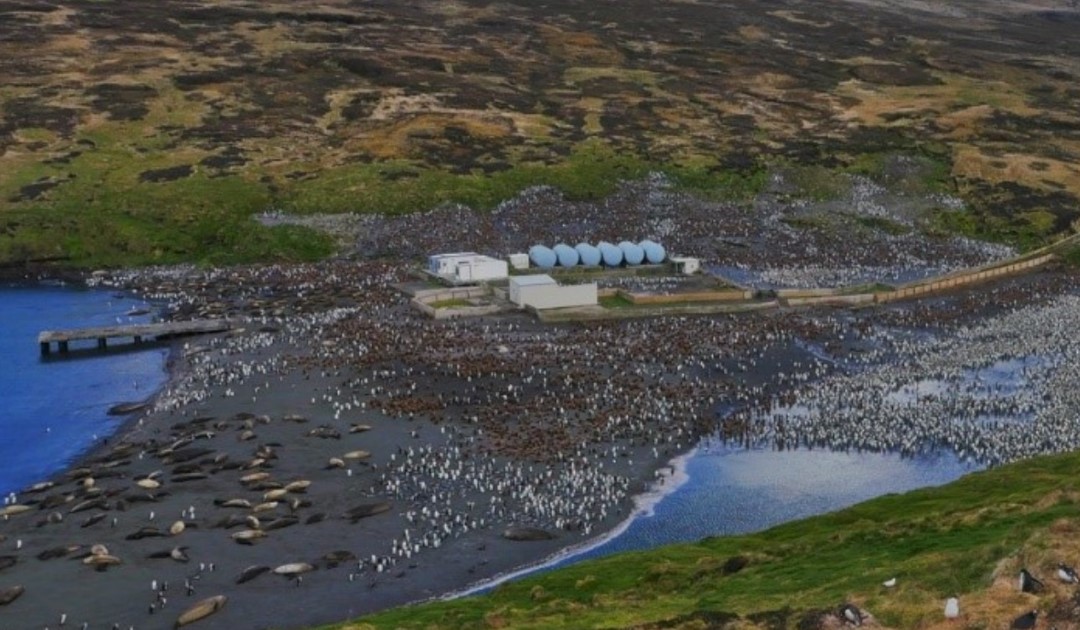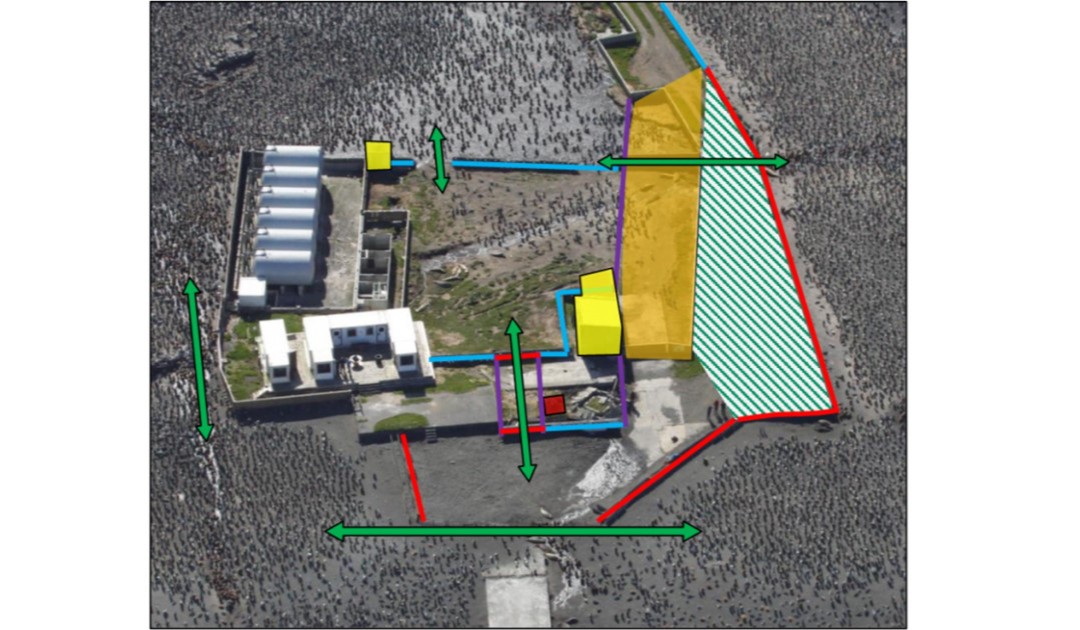
Work to modify the coastal facilities at the Alfred-Faure base in Crozet was completed last month, before the breeding season, to give the penguins more space and freedom to roam in this territory recognized by Unesco for the quality of its landscape.
In the Indian Ocean, on the Crozet archipelago, close to the polar front, the bay of Le Marin, on the island of La Possession, is home to a penguin colony as well as the port of the Alfred-Faure scientific station. Also, on the one hand, a colony of king penguins, which is relatively stable, and on the other, scientists from the French Polar Institute, staff from the Terres Australes et Antarctiques Françaises (French Southern and Antarctic Lands) and occasional visiting fishermen or sailors from the French Navy. The Bay of Le Marin lives up to its name. The port facilities are basic, with a slipway and fuel tanks, as are the scientific infrastructures: a few shelters to study the penguins from a distance or up close. “They are being studied extensively, with four different scientific programmes,” explains Clément Quétel, head of the Conservation and Restoration of Natural Environments department at the French Southern Territories National Nature Reserve.

This cohabitation has been permanent since 1964, when the scientific station was built less than a kilometer on foot from this beach, accessible by a track. As the island’s coastline is very steep, landing possibilities are very limited, with the Baie du Marin the best option. “The installation of an infrastructure inevitably generates traffic,” reminds Clément Quétel, “it’s a milestone along with the associated logistics.” To reduce the environmental footprint left by island users and the disturbance caused to the penguin colony, the French Southern Territories National Nature Reserve has decided to modify the layout of the port facilities. “We had to find a balance between the proper functioning of the ecosystem and the passage of scientists,” explains Franck Lustenberger, director of the national nature reserve. The work was completed last month, thanks in part to the 29 workers who had put the plans into action.




The harbour site – once enclosed – has been opened up so that the penguins can move between the beach and the bottom of the colony. “This central area is used by penguins that are not breeding, or are just passing through, but we hope that one day they will breed,” adds Clément Quetel. However, a second area freed up after the removal of a fence, now appreciated by the colony’s penguins, is more promising for establishing breeding pairs. As for the track, it has been fenced off by wooden barriers. “The passages are less visible from the colony”, adds Clément Quetel. The TAAF took the opportunity to connect the sanitary facilities in the port huts to a septic tank.
This work addresses another issue: the Baie du Marin is part of a UNESCO World Heritage site. “By replacing concrete with wood, a natural material, the landscape also regains its quality,” adds Franck Lustenberger. “The challenge in this work was to find the right meeting point to reconcile all these constraints. We managed to do so by taking a little time and thinking things through.”

Last July, the European Polar Board published a report on the environmental impact of research and logistics in the polar regions. Wildlife disturbance is identified as a nuisance. The authors recommend grouping missions together to reduce vehicle journeys, as is done in Antarctica. He also points to the environmental impact of housing, in terms of noise and light. These are important issues for the French Southern Territories Reserve and the French Polar Institute.
Camille Lin, PolarJournal
Learn more about this topic:





